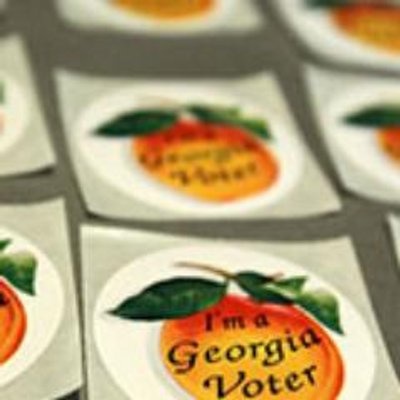Massive voter registration drive in Georgia fights voter suppression

While states across the country including Georgia have passed laws imposing new requirements on voters, the nonpartisan New Georgia Project has fought back against the forces of voter suppression with a massive voter registration effort.
But the effort has faced backlash in the form of a controversial fraud investigation by Georgia's Republican secretary of state. It's also embroiled in a lawsuit over the state's alleged failure to process more than 40,000 new voter registrations.
NGP began in March 2013 with 60 canvassers focusing on enrolling Georgians for health care under the Affordable Care Act. It turned its focus to voter registration as conversation after conversation made clear the need to empower disadvantaged voters, said NGP founder and Georgia state Rep. Stacey Abrams (D-Atlanta).
NGP estimates that around 800,000 people of color, voters between the ages of 18 and 29, and unmarried women -- what the group calls the "Rising American Electorate" -- were unregistered to vote in Georgia at the beginning of this year. Since March 16, NGP has hired canvassers and supported 12 partner organizations that say they have registered 120,000 new voters.
"The goal is to really create an infrastructure that allows this emerging majority to become not only the largest part of the population, but the political power in the state," Abrams said.
With two extremely close races for governor and U.S. Senate this year, registering 120,000 new voters is a big deal. (Gov. Nathan Deal, a Republican, won the 2010 election by a margin of 260,000 votes.) Early voting began on Sunday, Oct. 13, the first Sunday with early voting in Georgia's history.
A recent study by former NAACP President Ben Jealous for the Center for American Progress and the Southern Elections Foundation found that if 60 percent of unregistered African Americans and other people of color in Georgia registered to vote, their votes would likely be enough to sway statewide elections.
But some Georgia Republicans have sounded alarm bells about NGP's efforts. Georgia Secretary of State Brian Kemp subpoenaed NGP last month as part of an investigation into alleged voter fraud. Kemp said that 25 of the voter registration forms the group submitted could lead to prosecutions for fraud.
Rev. Dr. Raphael Warnock, the senior pastor at First Ebenezer Baptist Church in Atlanta and a spokesperson for NGP, said that many people of color in Georgia saw the tactics as part of a long history of voter suppression.
"This narrative of voter suppression is one that communities of color understand and understand deeply," Warnock said. "And it will backfire on those trying to suppress votes."
In 2006, Georgia passed a photo ID law characterized as "strict" by the National Conference of State Legislatures, meaning that the burden is on voters who do not have proper ID when they vote to later prove they are eligible to vote. A recent study by the Government Accountability Office found that voter ID laws reduce overall turnout by around 2 percent and disproportionately affect African-American voters as much as two or three times white voters.
In 2011, Georgia passed a law shortening the state's early voting period from 45 to 21 days. Research has found that African Americans are more likely than whites to take advantage of early voting.
Remarks made by Republican state officials in Georgia have heightened concerns about voter suppression. Speaking at a local Georgia Republican Party event earlier this year, for example, Kemp said, "Democrats are working hard… registering all these minority voters that are out there and others that are sitting on the sidelines, if they can do that they can win these elections in November."
Around the same time Kemp's office accused the NGP of voter fraud, the group noticed that around 50,000 of the registrations the organization had submitted still had not been processed by the county board of elections -- some dating back to April 2014.
NGP, the Georgia chapter of the NAACP, and the national NAACP filed a lawsuit on Oct. 10 demanding that Kemp and the five counties process the outstanding voter registration forms NGP submitted before the Oct. 6 voter registration deadline. While the county board of elections are independent of the secretary of state's office, they rely on its guidance and information to process registrations.
"We believe the fundamental flaw lies in the Secretary of State's office," Abrams said. Kemp has said his office did not target NGP.
Pushing back on efforts to restrict voting rights, Georgia Democrats have tried to pass some of the nation's most progressive voting rights laws, introducing bills to expand early voting, restore voting rights to people with felony convictions, and create civilian redistricting committees. None have passed.
Abrams said that in the next legislative session she plans to introduce legislation to make sure voters can vote anywhere in the state, including introducing polls that come to voters who are unable to leave home.
Abrams said NGP's campaign to register voters is not just about her party winning at the polls.
"We are here today and are not going to be gone at the end of the election," she said. "The goal is to build up the civic capacity of people in Georgia."
